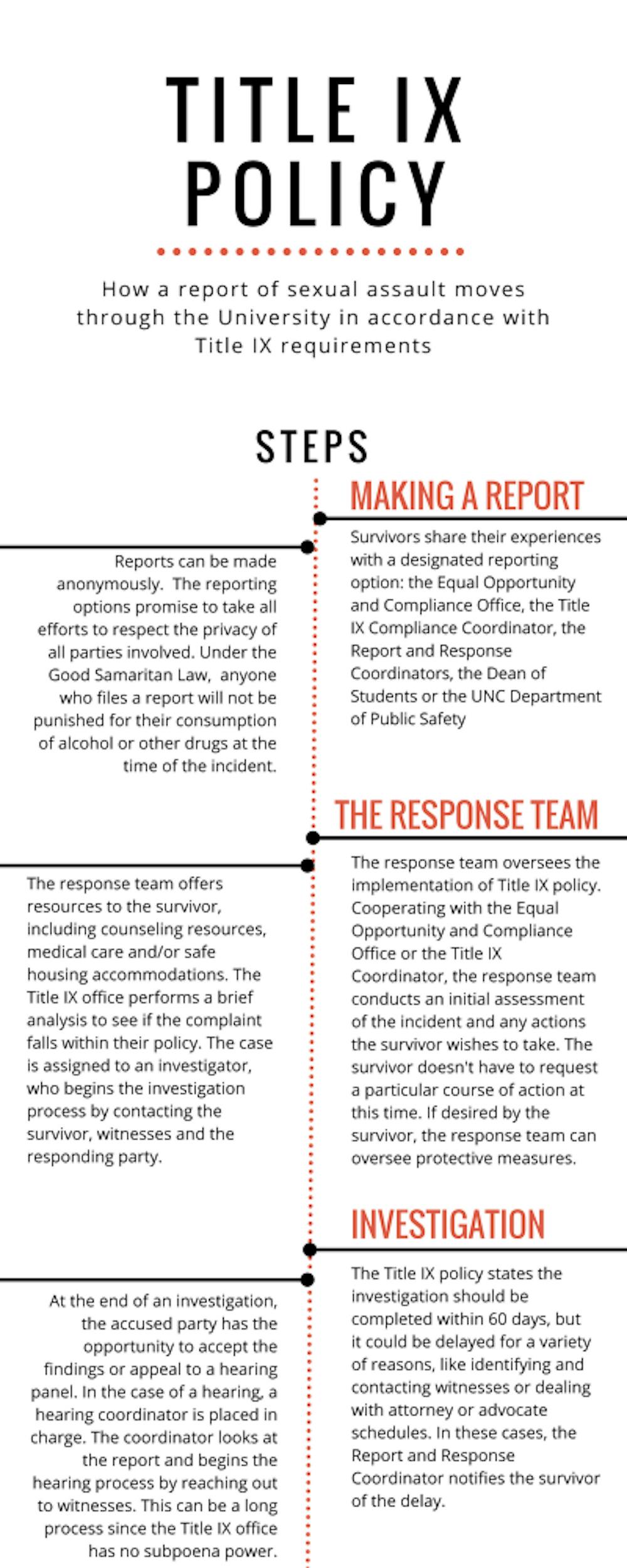The University's new sexual assault policy was created in 2014, and the Chapel Hill Police Department created its current policy in 2004. While these policies exist, some people have concerns about them.
R., a survivor of sexual assault who wishes to remain anonymous and originally spoke to The Daily Tar Heel in September, went to the emergency room to get medical attention and evidence collection, she said. She wasn’t sure if she wanted to report the assault at first, but then changed her mind and reported.
While she filed a report with the Chapel Hill Police Department, she did not ask for a police investigation because she wanted her privacy. Later R. filed a report through the Equal Opportunity and Compliance Office and asked for an investigation through UNC.
Part of the reason she decided to request an investigation through the University was the projected timeline for the process.
“I thought that the school’s investigation would be over in three months, roughly,” R. said. “An investigation through the police, I was told, could take years.”
Other reasons for initiating the investigation through the school and not through the police was because she wanted to keep her privacy and thought the school’s investigation could result in a more helpful outcome for other survivors of sexual assault.

“A big part of it was I had to think, "What do I want out of this? What do I want the outcome to be?” she said. “What can I do that will ultimately reduce occurrences of sexual assault? I didn’t feel like sending someone to jail. I guess it really depends on your personal situation, but I’m overly sympathetic.”
She would have preferred that her attacker was suspended or expelled instead of going to jail, she said. Receiving school sanctions rather than criminal sanctions, she thought, would give her attacker an opportunity at reform and make him a better person.



